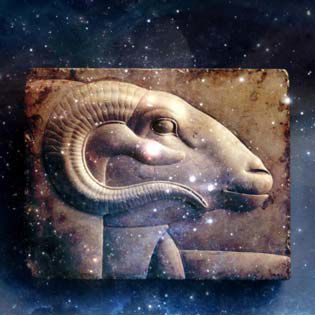Do ancient Egyptians dream of electric sheep? The reception of ancient Egypt in science fiction
- Location
- Online and simultaneous livestream on Digital Hammurabi
- Dates
- Friday 9 July (12:45) - Saturday 10 July 2021 (19:30)

#ElectricSheep21
Friday 9 July (12.45-5.45pm) and Saturday 10 July (1-7.30pm)
Online via zoom (and simultaneous livestream on Digital Hammurabi)
In Mary Shelley’s Frankenstein (1818) – a milestone in the history of the science fiction genre – the eponymous scientist is horrified when the creature he has assembled from assorted body parts is successfully animated. ‘A mummy again endued with animation could not be so hideous as that wretch’, Frankenstein relates. This comparison – between a figure who represents the potential disastrous consequences of cutting-edge scientific enquiry and the bodies of the ancient Egyptian dead – is one that recurs later in the novel. Having dispatched his creator, the creature’s ‘vast hand’ is described as ‘in colour and apparent texture like that of a mummy’. Nearly two centuries later, Roland Emmerich’s Stargate (1994) also depicts ancient Egyptian bodies in settings infused with a futuristic aesthetic; alien entities acquire human forms in order to extend their lifespans, while sarcophagi are reimagined as regeneration chambers.
Science fiction has undeniably contributed to creating an image of ancient Egypt, and yet it is only starting to be addressed by Egyptological scholarship. Literature, theatre, film, television, comics, and video games all present images of Egypt that have had an enduring impact on perceptions of Egypt by the public. Nevertheless, and despite the involvement of experts in contributing to or shaping these cultural products – in Stargate’s case, in professional Egyptological consultation with regards to written and spoken Ancient Egyptian – the ways in which Egyptological scholarship informs science fiction in particular still remain to be explored. How might Egyptologists engage with this material beyond judging its historical authenticity? And to what extent can science fiction contribute to scholarly discussions of ancient Egypt?
The aim of this event is to explore the reception and reconstruction of Egypt in science fiction, fostering a dialogue among Egyptologists, cultural historians, literary scholars, and creative practitioners. The symposium will be held on Zoom over two days (July 9th and July 10th), and it will include pre-recorded and live presentations, Q&A panels, and a keynote lecture. We are pleased to have partnered with Digital Hammurabi, and some of the lectures will also be livestreamed on their YouTube channel. The programme and the book of abstracts can be found here.
To register for this event, please visit our Eventbrite page.